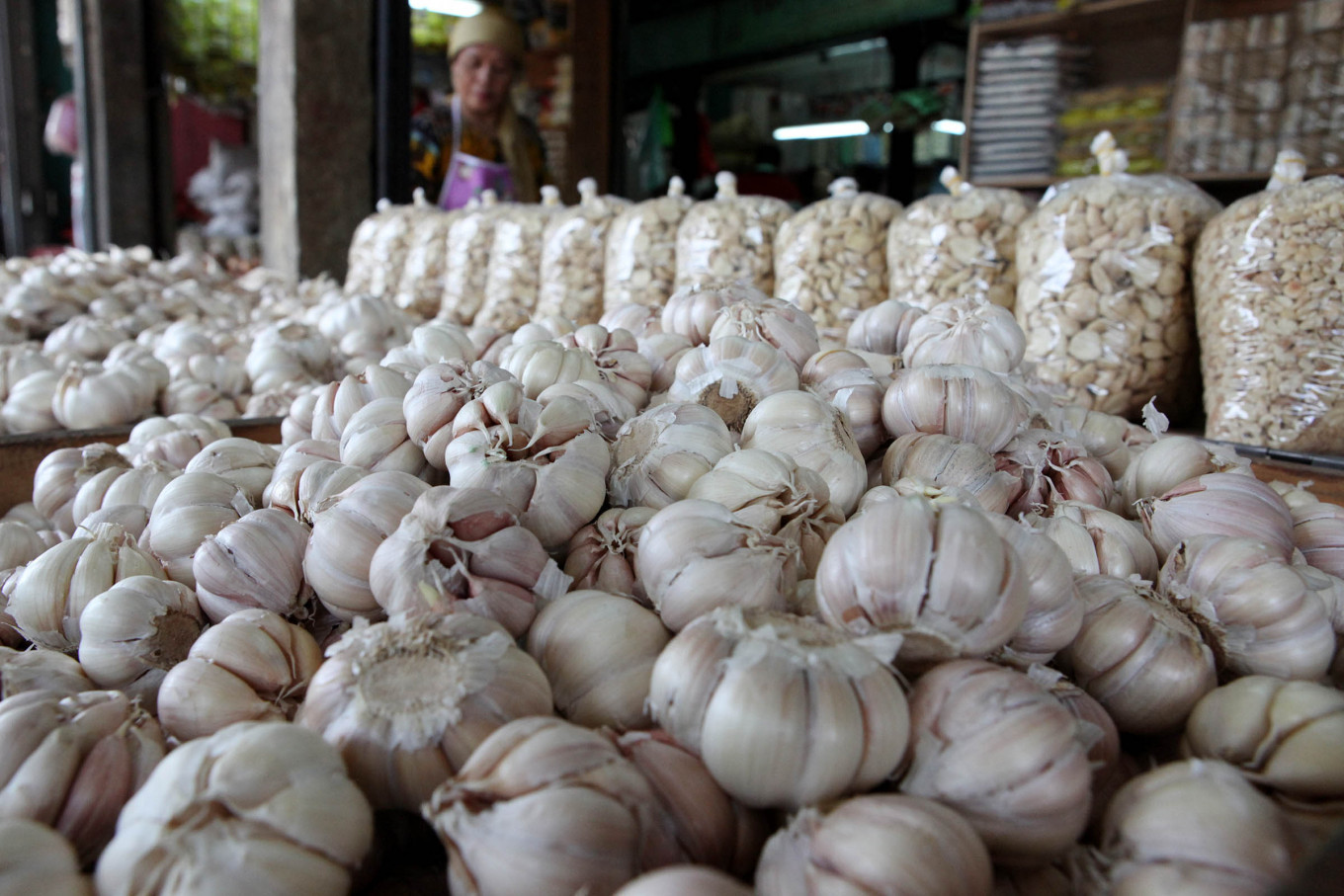Popular Reads
Top Results
Can't find what you're looking for?
View all search resultsPopular Reads
Top Results
Can't find what you're looking for?
View all search resultsGarlic stock will only suffice until April without Chinese imports
Change text size
Gift Premium Articles
to Anyone
I
ndonesians could find it difficult to buy garlic during the Ramadan holiday season this year if the country fails to get imports from China soon, an official has said.
Food Resilience Agency (BKP) head Agung Hendriadi said that the garlic stock had already fallen to 80,000 tons as of Thursday. With monthly garlic consumption of some 46,000 tons, current stocks would only suffice until April.
So far, the Trade Ministry has only issued import permit letters for 62,000 tons out of 103,000 tons recommended by the Agriculture Ministry. Agung urged the Trade Ministry to issue a permit for at least 80,000 tons of garlic to fulfil domestic needs.
“We are also trying to [import] from other countries like India and Thailand that also produce garlic,” he told reporters after a discussion with the Indonesian Chamber of Commerce and Industry (Kadin) in Jakarta on Thursday.
The latest import effort aims to maintain supply and avoid further price increases amid the coronavirus outbreak. The virus has been blamed for the diminishing garlic supply from China, thereby spiking the commodity’s price in Indonesia.
The price currently stands at a national average of Rp 46,600 (US$3.35) per kilogram, almost double the usual Rp 25,000 to Rp 30,000 per kg, according to the Information Center for Strategic Food Prices (PIHPS).
“Insya Allah [God Willing], we hope that the coronavirus will go away soon so that we can rejoice once again,” Agung added.
Read also: Rising garlic price cannot be blamed on coronavirus
Indonesia has long depended on China, the world’s leading garlic producer, to fulfil its domestic garlic consumption. In 2019 alone, Indonesia imported around 465,000 tons of garlic with an import value of nearly $530 million, Statistics Indonesia (BPS) data showed.
Indonesia is only able to produce 85,000 tons per year or only 10 percent of annual garlic needs, with the remaining 90 percent fulfilled by imports.
The Business Competition Supervisory Commission (KPPU) commissioner Guntur Saragih also voiced concern on Feb. 14 but said the rising prices could not be blamed on the coronavirus.
He instead blamed slow import realization for the scarcity, which he said had already happened before the virus broke out. The KPPU said that the government had issued import recommendations for more than 100,000 tons, 60,000 tons of which would be used to ensure supplies until the Ramadhan holidays – which were unrealized as of Feb. 14.
"It’s a problem when imports are done late. Supply will certainly thin out, thus automatically shifting [prices]," Guntur said. However, his team's investigation had yet to ascertain whether importers were intentionally holding back imports to push up prices.
This is not the first time that garlic prices have skyrocketed. Last year, garlic prices spiked to more than Rp 80,000 per kg due to import recommendations not being issued until April 2019.










